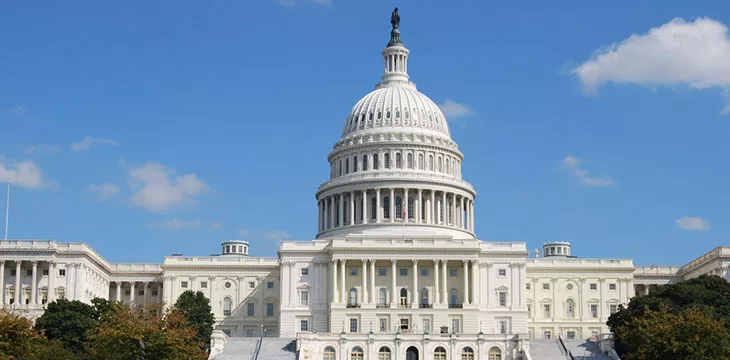|
Getting your Trinity Audio player ready...
|
The White House is undertaking a new campaign to harness the power of artificial intelligence (AI) as the technology continues to advance rapidly. Last week, Vice President Kamala Harris met with CEOs of the world’s largest companies as the White House unveiled a $140 million fund for responsible AI research.
Harris met on May 4 with the CEOs of Google (NASDAQ: GOOGL), Microsoft (NASDAQ: MSFT), AI startup Anthropic, and ChatGPT maker OpenAI to discuss the future of AI.
Advances in tech always present new opportunities and challenges. Generative AI is no different.
Today, I met with CEOs of companies at the forefront of these advances to discuss the responsibility that governments and companies have to mitigate risks to protect the public. pic.twitter.com/YQOkdv1BgR
— Vice President Kamala Harris (@VP) May 5, 2023
The meeting focused on responsible innovation in AI, with the VP emphasizing that trailblazers in the field, like OpenAI and Google, must spearhead ethical use of the technology.
“Tech companies have a fundamental responsibility to make sure their products are safe and secure and that they protect people’s rights before they’re deployed or made public,” a senior official at the White House told reporters ahead of the meeting.
In a statement after the conference, Harris revealed she had reiterated to the AI CEOs that they must ensure the safety and security of their products. She added that they must also comply with existing laws to protect the people.
The four companies at the meeting are at the forefront of the AI revolution. OpenAI is the industry’s poster child, with its ChatGPT chatbot drawing global attention to AI. Google is battling for the spotlight with its Bard chatbot, while Microsoft is the biggest investor in OpenAI and has revitalized its Bing search engine with ChatGPT.
Anthropic was founded by former OpenAI employees and focuses on developing ‘responsible’ AI systems.
Participants at the meeting praised the initiative, which they believe is a great start toward developing policies for AI. After the meeting, Sam Altman, the OpenAI CEO, told reporters, “we’re surprisingly on the same page on what needs to happen.”
The AI arms race heats up
The meeting, where President Joe Biden made a surprise appearance at, came at the same time the White House announced new initiatives to promote AI development.
They include a $140 million fund announced by the National Science Foundation (NSF) to launch seven new National AI Research Institutes. These institutes, which will shoot to 25, coordinate collaboration between higher learning institutes, federal agencies, top companies, and other stakeholders in the AI industry.
The White House also announced an independent initiative by top players like Google, Microsoft, and Nvidia (NASDAQ: NVDA) to publicly assess AI systems. The scheme will evaluate the impacts of such systems and allow developers to fix emerging issues.
As AI adoption proliferates, an arms race is shaping up between Europe, the U.S., and Asia, led by China. Europe has focused on responsible AI advancement and is leaning toward a tough regulatory approach, the same approach it has taken toward data privacy and digital assets. European regulators have even called for a partnership on regulations with President Biden.
The U.S. is keen to be a global leader. Tom Wheeler, a former chair of the Federal Trade Communications (FTC), is among those who believes the U.S. must stay ahead of other regions.
“Europe certainly isn’t sitting around, nor is China. There is a first mover advantage in policy as much as there is a first mover advantage in the marketplace.”
In order for artificial intelligence (AI) to work right within the law and thrive in the face of growing challenges, it needs to integrate an enterprise blockchain system that ensures data input quality and ownership—allowing it to keep data safe while also guaranteeing the immutability of data. Check out CoinGeek’s coverage on this emerging tech to learn more why Enterprise blockchain will be the backbone of AI.
Watch: Blockchain can bring accountability to AI

 07-02-2025
07-02-2025 





